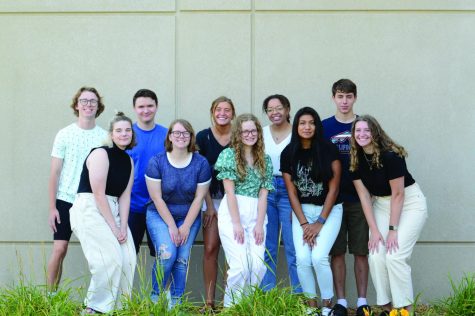Secondary offense not enough in terms of safety
March 5, 2014
Issue: South Dakota legislators are looking to pass a statewide texting and driving ban in both the House and Senate.
As of right now, there is no statewide statue addressing the pervasive issue of texting and driving. There are currently smaller city or countywide bans all across the state. House Bill 1177 and Senate Bill 179 are both looking to make texting while driving a secondary offense.
These bills have differences, HB 1177 has a $25 fine and would override the other city bans that have been in place, making it a secondary offense; and SB 179 also makes texting and driving a secondary offense with a $100 fine.
These two bills are set up to pretty much guarantee that texting and driving will be recognized by the state, however making it a secondary offense also shows us that they really don’t care about the wellbeing of our drivers.
SB 179 allows the city to control if it’s secondary or not, but is that really a decision that needs to be discussed at the city level? Isn’t there a sort of benevolence that goes with these bills that we can set aside the age-old idea of small government vs. big government?
The state government should just have one big discussion about this issue rather than leaving it to other cities and possibly allowing further accidents in the process.
Texting while driving makes crashing 23 times as likely as just focusing on the road. 11 teens die every day across the country because of texting while driving, according to textinganddrivingsafety.com.
In Sioux Falls in the summer of 2012, a distracted driver was texting and driving, speeding at 60 miles per hour in a 30 mile-per-hour zone, and struck a motorcyclist along with three other vehicles. The motorcyclist was killed.
Laws are designed to prevent things like this from happening. The driver in this particular instance may have been speeding, but why were they speeding?
Instead of dancing around this issue, the state needs to step in and say enough is enough and make the safety of drivers a priority. Making texting and driving a secondary offense makes it virtually unenforceable – if a police officer sees someone texting, they can’t do anything about it unless the driver is also guilty of a primary offense. If not, there is nothing the police officer can do to protect the safety of others on the road.
It’s selfish to leave the wellbeing of other human beings in the hands of others by simply trusting they won’t text and drive. This issue needs to be taken more seriously, starting with increased awareness. And having our government recognize it as a primary offense will hopefully emphasize the fact that innocent lives are being spent over digital communication.
Stance: South Dakota state government needs to ban texting and driving statewide and make it a primary offense.

























